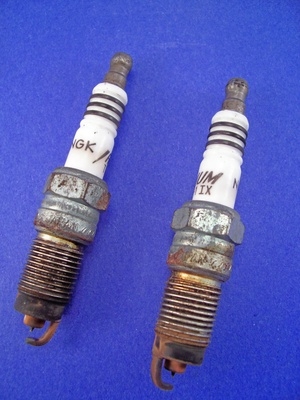
Carbon fouling is one of the potential fouling problems that happens to spark plugs. According to NGK Spark Plugs, when the insulator nose of the spark plug is coated, it is considered fouled. The website continues to explain that while carbon fouling can cause problems, if the spark plugs are cleaned, there should not be any problems afterward unless the spark plugs were also damaged.
Stop-and-go traffic, where a vehicle is stopping constantly, is never good for the vehicle. It not only lowers vehicle gas mileage, but it can result in carbon fouling of the spark plugs. Unfortunately, it is impossible to prevent stop-and-go traffic conditions. When a vehicle is constantly in stop-and-go traffic, checking the spark plugs regularly for carbon build up, which is a sooty, black material that builds on the spark plug can prevent damage to the spark plug and allow cleaning before problems start.
When a vehicle does not drive for an extended time period, the spark plugs do not get hot and that means they cannot burn off the carbon or fuel deposits. A vehicle left idling for a long period of time will often end up with carbon fouling. When a vehicle is not going to leave soon, turning off the engine will prevent fouling from vehicle idling because it will eliminate carbon deposits.
A rich fuel mixture can result in carbon fouling. There are several potential reasons the fuel mixture is rich and these reasons range from a leaky fuel injector to problems with vehicle oxygen or coolant sensors. The only way to determine if the fuel mixture is too rich is by getting the vehicle checked for problems like sensors that are not working.